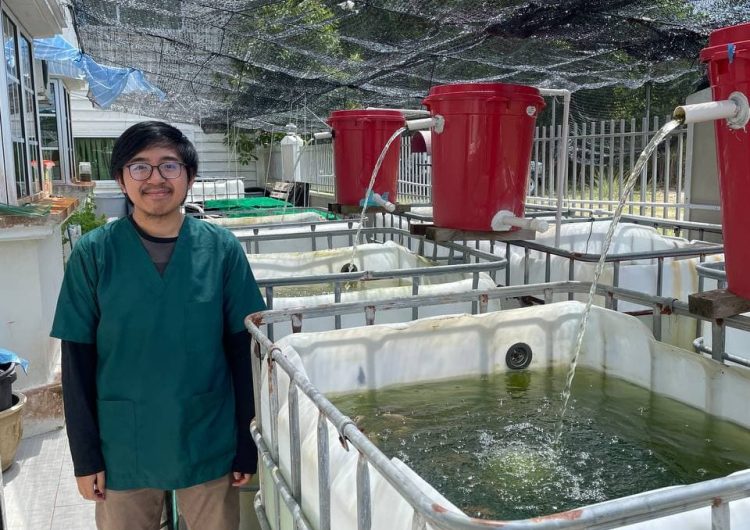A homegrown aquaculture business that began in a family backyard during the COVID-19 pandemic is now producing more than 500 kilogrammes of fish per month, with aims to increase output and reduce the country’s reliance on seafood imports.
Fatih Aquaculture, founded in 2020 by Ahmad Fathi Dato Seri Setia Dr Hj Norarfan, now manages over 350 sea cages at two sites – Pulau Kaingaran and Sungai Bunga – and has developed what it said to be the country’s first solar-powered floating hatchery.
While many industries came to a standstill during the pandemic, for Fathi, it was the moment everything began to take shape.
With a background in marine biology and aquaculture training from the Borneo Marine Research Institute, Fathi had always been interested in sustainable fish farming. But it was the disruptions caused by the pandemic that pushed him to act.
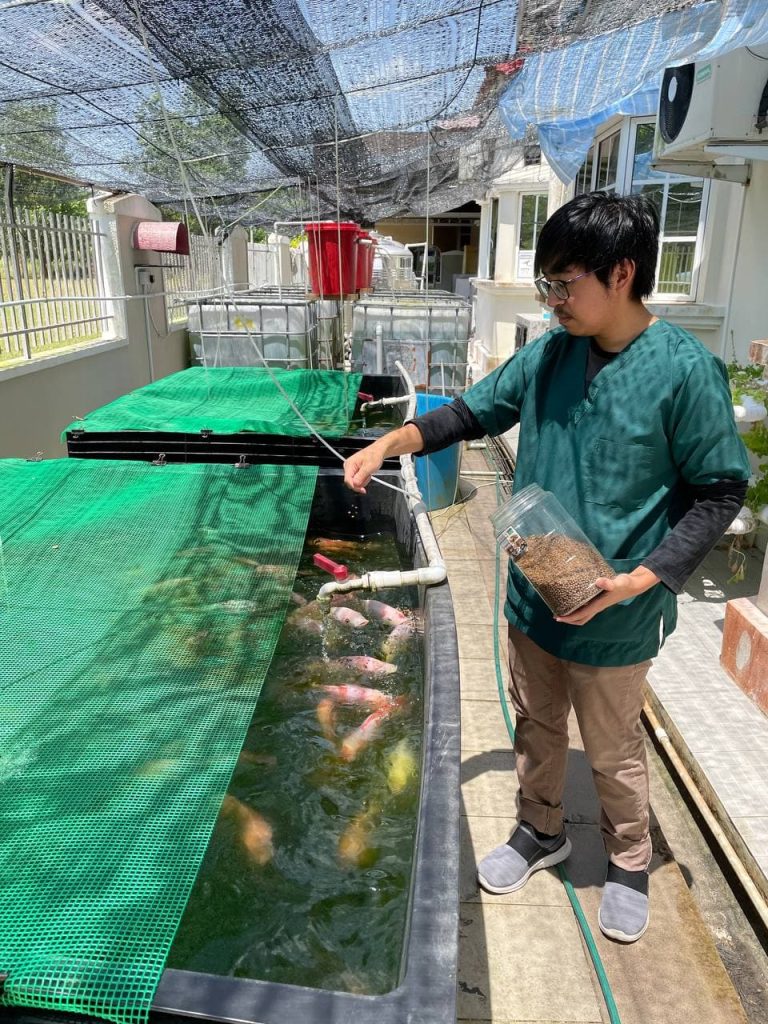
“I was working as a frontliner during the national vaccination campaign. At the same time, I started to see how vulnerable we were when it came to food supply. There were disruptions everywhere. That experience made me think more seriously about food security and how Brunei could produce more of its own essential goods,” he said.
“Starting Fatih Aquaculture became something more than a career decision. It felt like a small way to contribute to our country’s long-term resilience,” he added.
Threading waters with Fatih Aquaculture
“I started with a few tanks at home, just enough to begin testing what I had learned during my aquaculture training. It was never meant to be a full business at first. It was a way to build confidence through practice,” Fathi shared.
That modest backyard setup, launched during the height of the COVID-19 lockdown in 2020, grew into Fatih Aquaculture – a marine farming venture focused on sustainable fish production and strengthening Brunei’s food security.
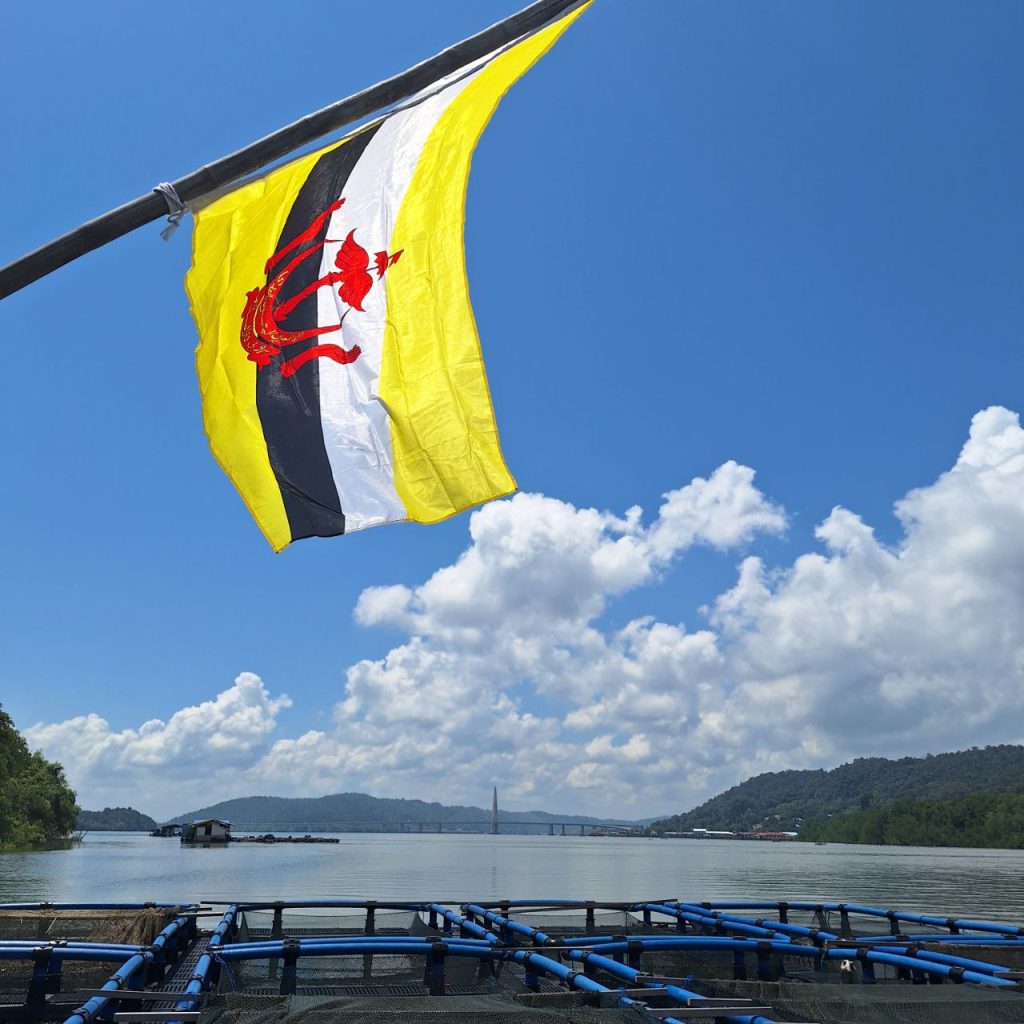
In the early days, Fathi experimented with water quality, feeding routines and fish growth cycles, laying the foundation for a larger operation at sea.
Today, Fatih Aquaculture operates two main sites: Pulau Kaingaran and Sungai Bunga.
“We chose the site very carefully,” Fathi said. “Kaingaran has a natural barrier that protects the cages from strong waves. The water quality is also consistent, which is important for species like seabass and red tilapia. These fish are in strong demand locally and regionally. They grow well in brackish and marine waters and have good survival rates.”
Pulau Kaingaran was selected as the primary farming location due to its calm waters and stable environment, while Sungai Bunga was added later to support expansion.
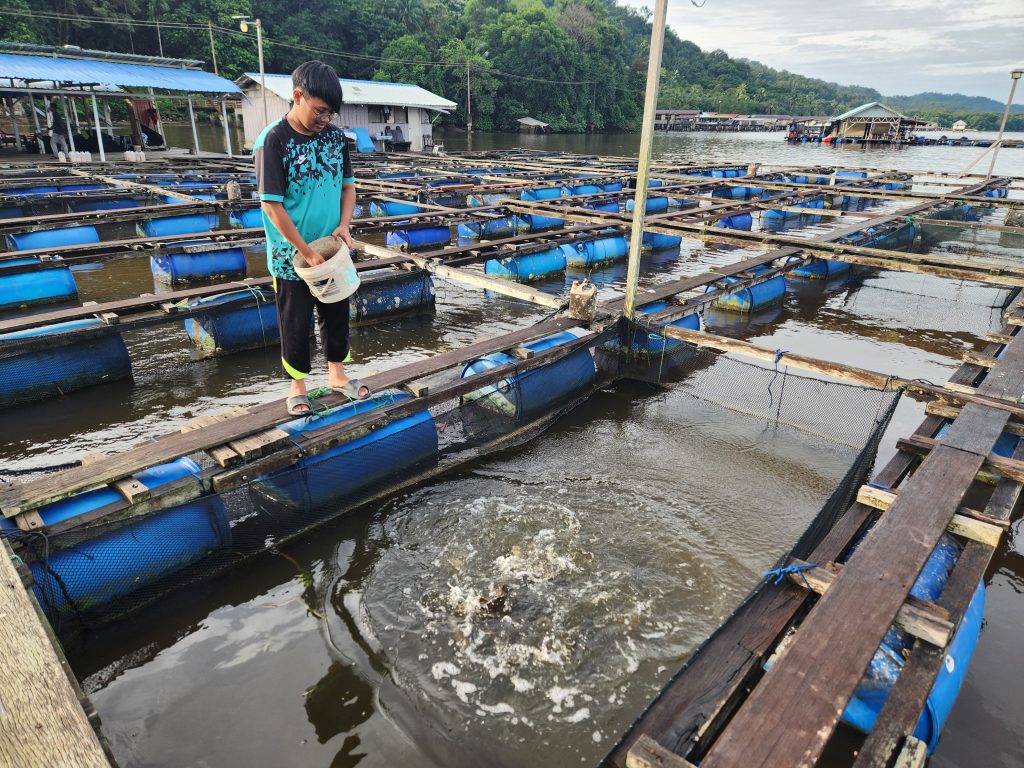
“We also looked for water conditions that could support marine fish health and cage structure. Kaingaran was ideal. The nearby island reduces wave impact and helps maintain stable environments for seabass and red tilapia,” Fathi explained.
“The water quality there works well with the species we raise. Sungai Bunga gave us more space to grow,” he added.
According to the youthpreneur, the early years were challenging.
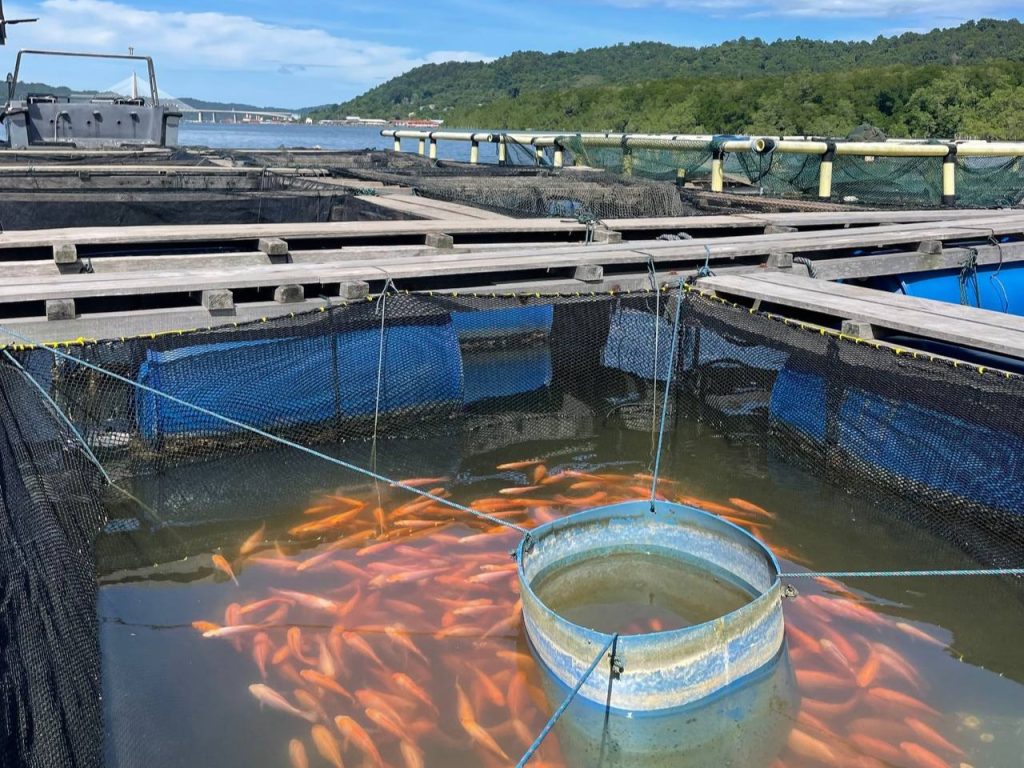
“Getting people to believe in this idea took time. We had no major backing at first. For two to three years, we operated from the backyard because we couldn’t afford to scale,” he said.
In its first year with sea cages, Fatih purposely paused production.
“We treated the first year as setup and testing. We had to learn how our systems would perform at sea. There were many adjustments to make before we could harvest anything,” he shared.
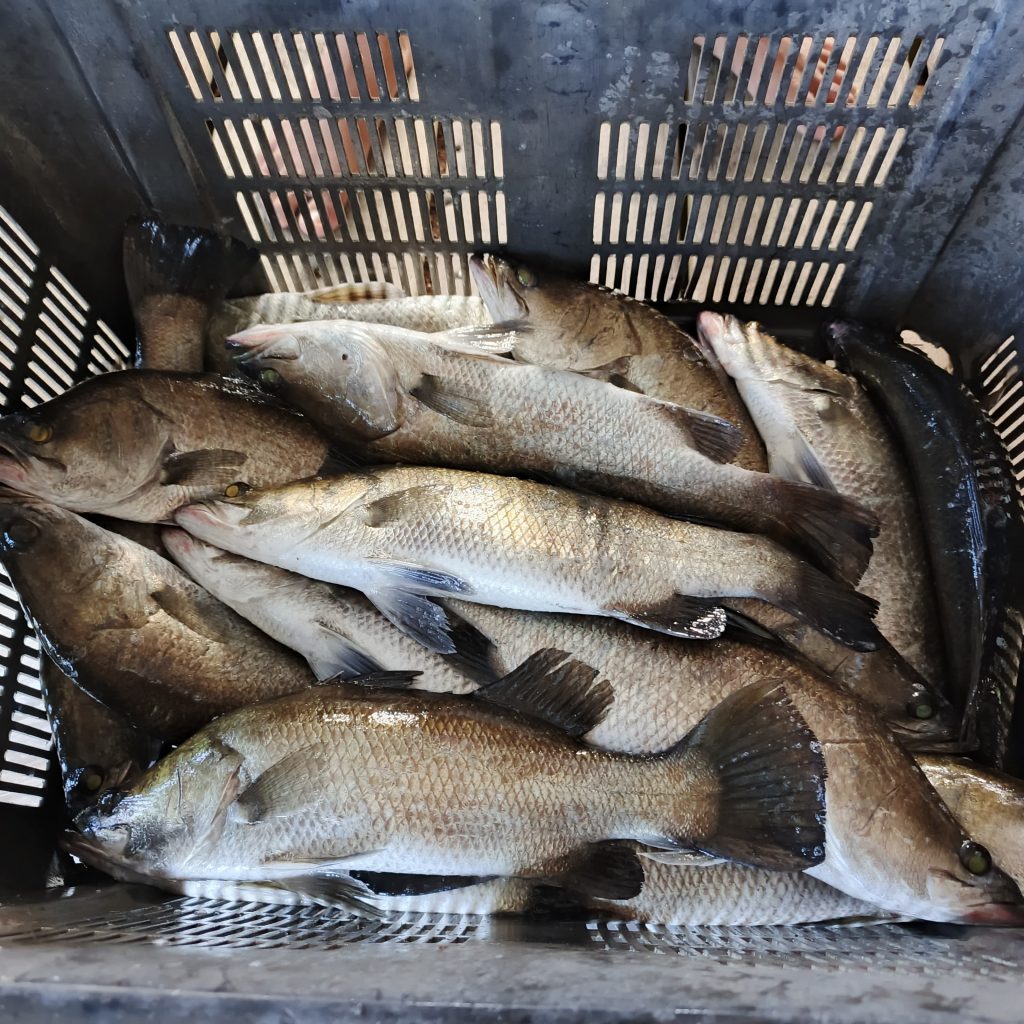
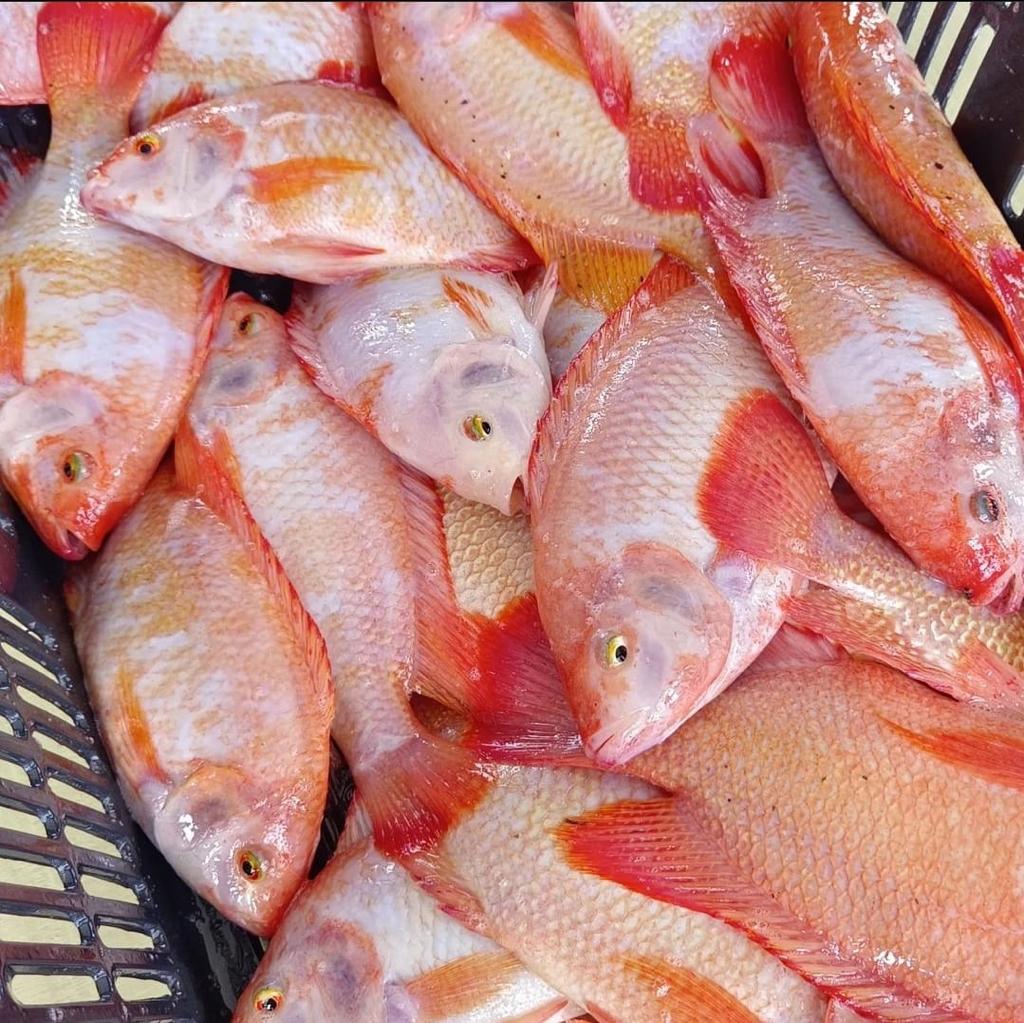
Production began in the second year, reaching 100 to 200 kilogrammes per month. The company has since expanded to managing over 350 sea cages, with 54 active production cages delivering more than 500 kilogrammes monthly.
Fatih farms red tilapia and barramundi (Asian seabass), species chosen for their compatibility with local waters and strong market demand.
“These species perform well in brackish and marine conditions, which fits our environment,” Fathi said.
Hatching a sun-powered solution and innovation
Fatih Aquaculture’s commitment to sustainable innovation was put into practice during the ASEAN Blue Innovation Challenge, where Fathi proposed a floating hatchery powered entirely by solar energy.
Over six months, with the support of mentors and technical partners, the concept was developed into a fully operational prototype, now in use at sea.
“The hatchery sits on the water and runs entirely off-grid. Because the fingerlings are grown close to where they’ll be farmed, they go through less stress when transferred. That has improved survival rates,” said Fathi.
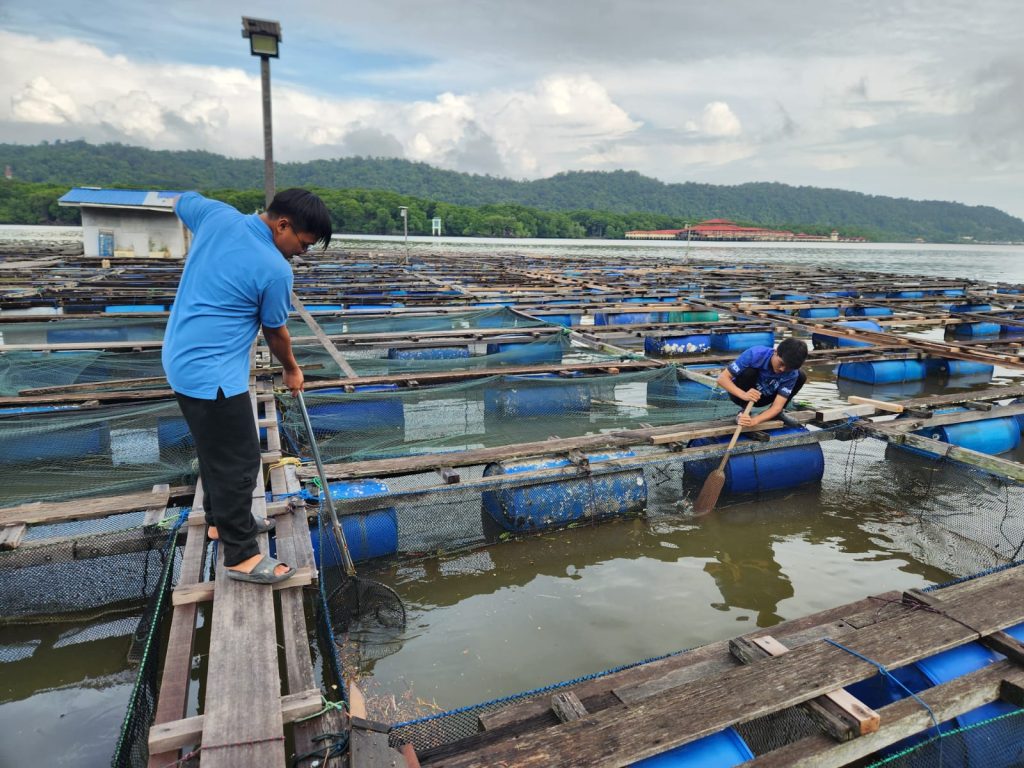
The floating hatchery not only improves fish health outcomes but also reduces reliance on conventional energy sources. By operating off-grid, the system cuts operational energy costs and reduces its carbon footprint.
“We also cut down on energy costs and lowered our carbon footprint. It’s a small system, but one that’s efficient and sustainable. It’s the first of its kind in Brunei,” Fathi added.
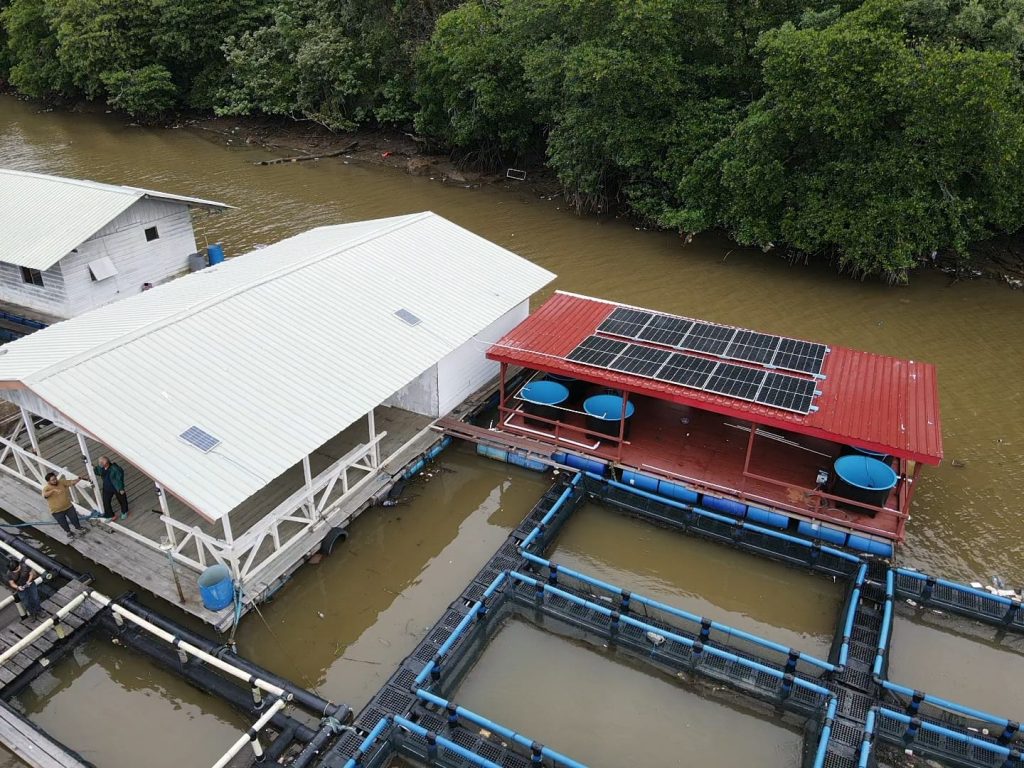
Unlike traditional hatcheries, which are typically located inland and require transportation of fingerlings to sea cages, Fatih’s sea-based model allows the surrounding marine environment to be used as part of the rearing system.
The integrated approach supports better resource efficiency, simplifies logistics, and enhances fish handling processes.
Here’s an expanded and polished version of the section, with smoother flow, a bit more depth, and a strong close:
Nurturing talent and tackling challenges
Behind the scenes, Fatih Aquaculture runs on a tight but capable team. Three local staff and five experienced foreign technicians form the backbone of daily operations, supported by dedicated site supervisors who manage each farming location.
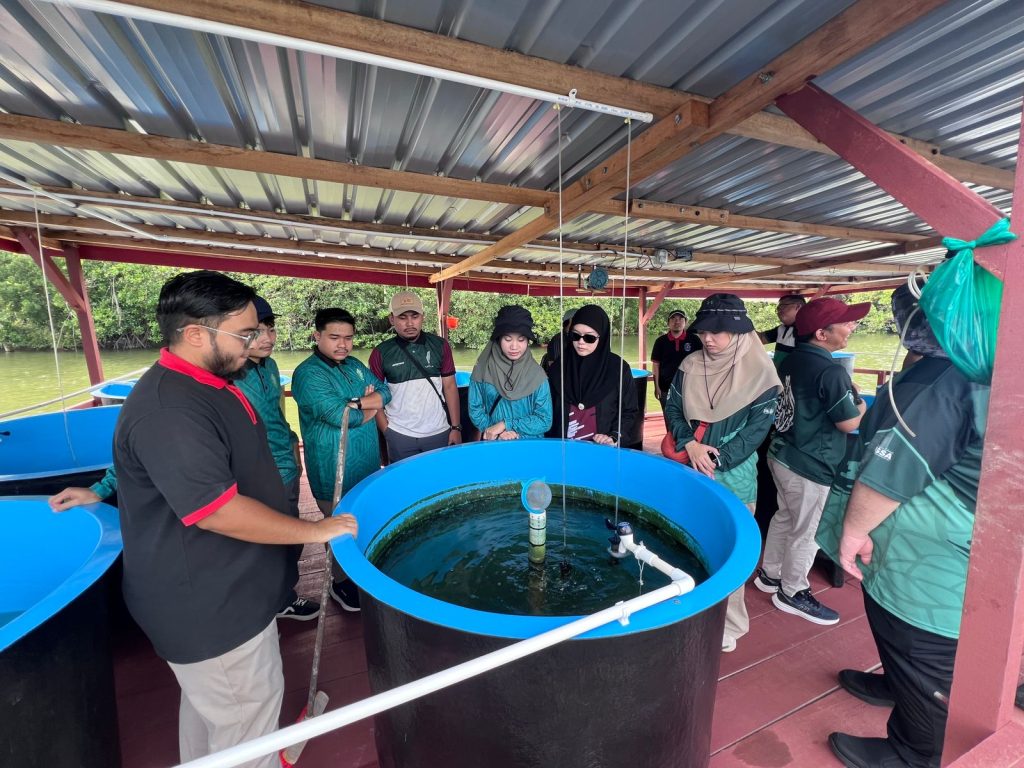
The company also provides regular internship opportunities for students, giving them hands-on exposure to modern aquaculture systems and day-to-day farm management.
“We want to build the next generation of talent for Brunei’s blue economy,” said Fathi.
“It’s important that young people see aquaculture not just as manual work, but as a real industry with potential, especially as the country moves towards food resilience and economic diversification.”
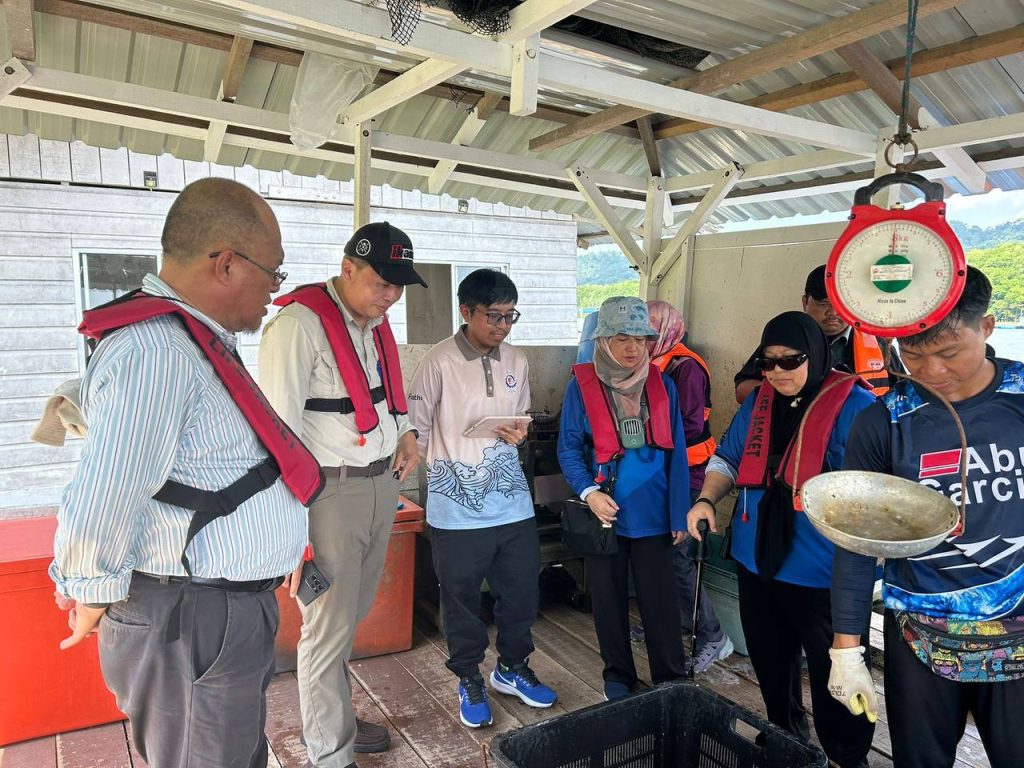
But life at sea comes with its share of unpredictability. Drifting marine debris, changing salinity levels and erratic weather patterns are part of the daily equation. These environmental variables can affect everything from fish health to farm infrastructure.
Still, Fatih’s strategy remains rooted in anticipation and agility.
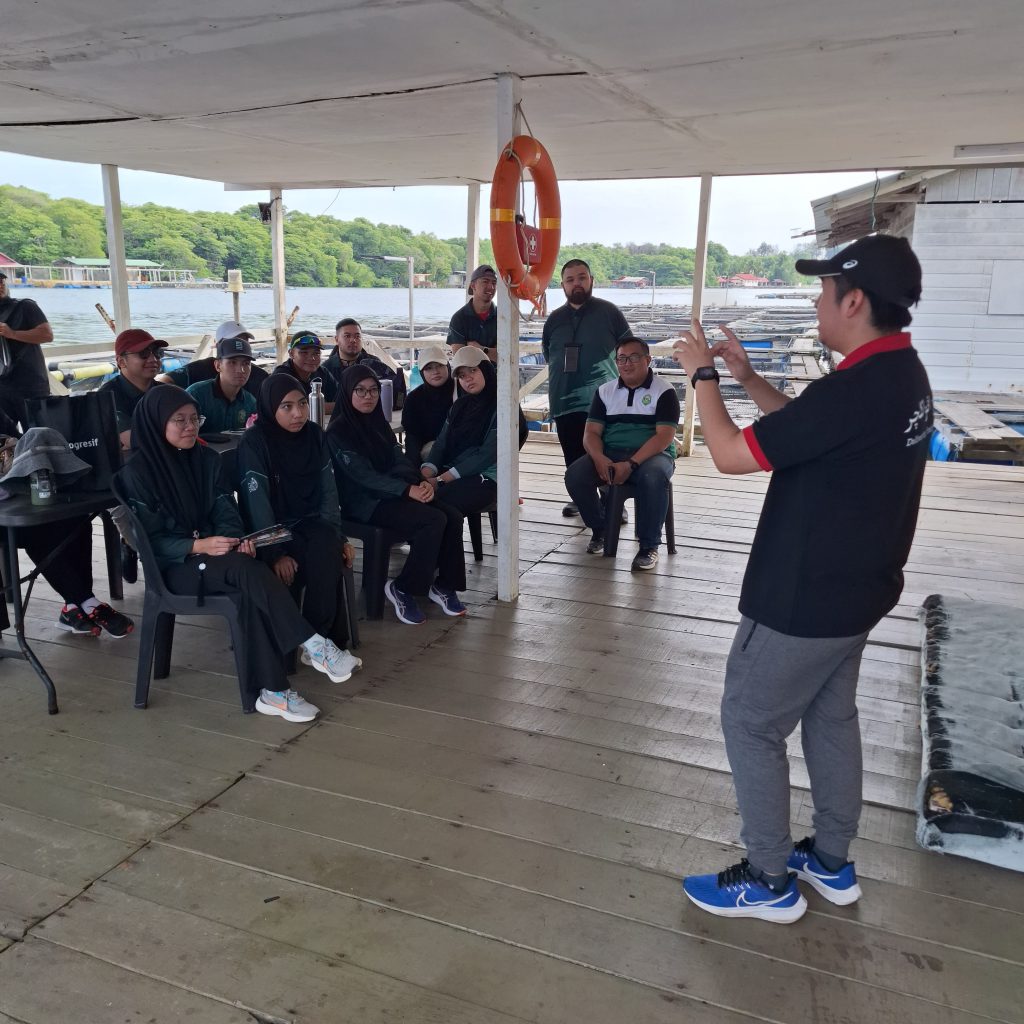
“We closely monitor fish behaviour and act quickly at any sign of stress or imbalance,” Fathi explained.
“Our systems are modular and scalable. That gives us the flexibility to adapt – whether it’s to environmental shifts or changes in market demand. Being proactive is key to staying sustainable in this business.”
Through a combination of teamwork, continuous learning and adaptive design, Fatih Aquaculture aims to not only survive the challenges of open-sea farming but to build a long-term model others in the region can learn from.
Making waves with aquaculture farming
The business gained recognition in 2025 after winning the Startup Award at the Proudly Brunei Business Awards, following earlier acknowledgment from the LiveWIRE Business Awards.
“It was a big moment for us,” Fathi said. “The early days were full of uncertainty. We didn’t have much capital. People doubted whether this could work, even people close to me. We spent two to three years operating from our backyard system before we could afford to scale.”
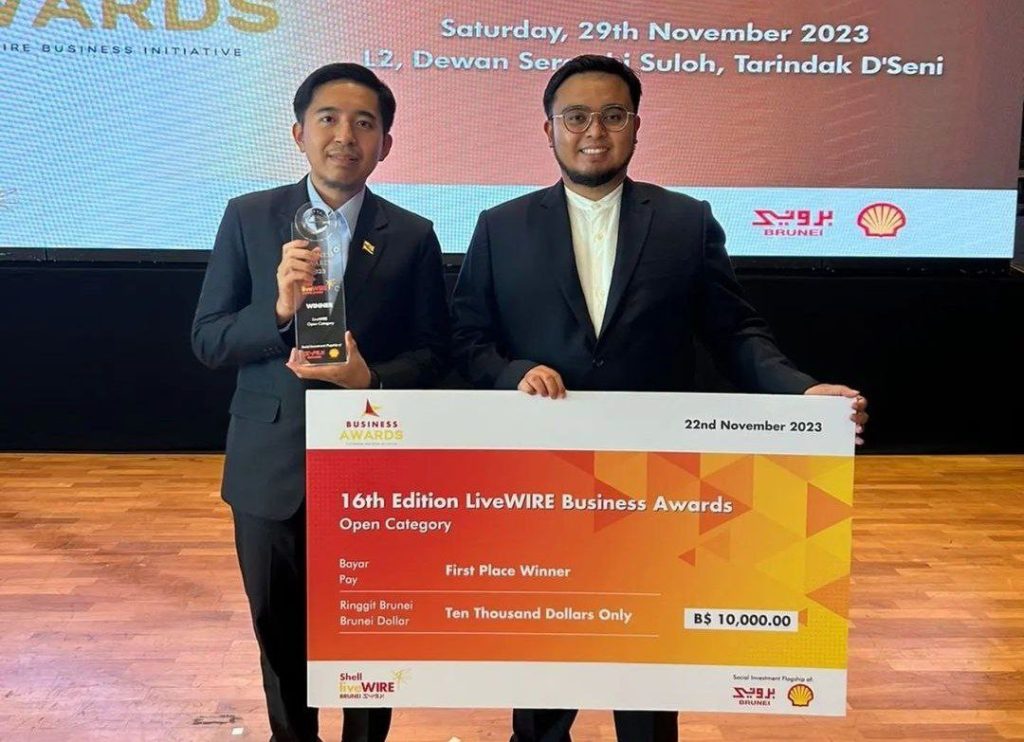
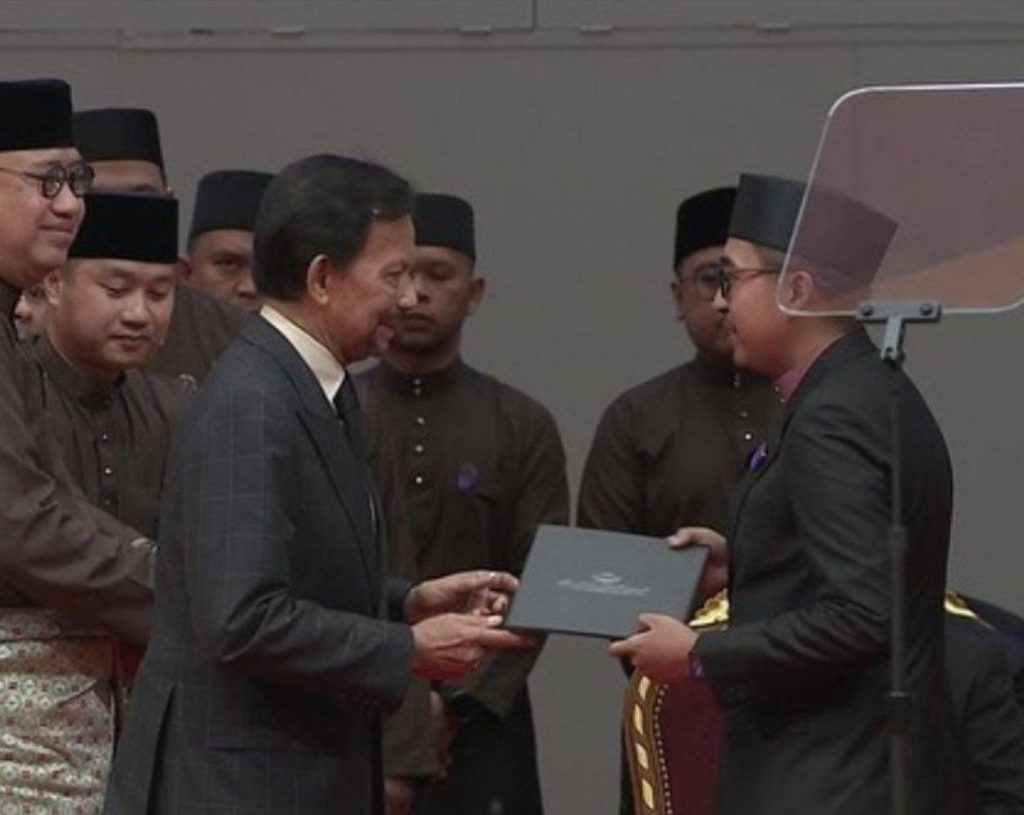
The awards gave the company more visibility and momentum.
“It showed us that we were on the right path. It helped validate the risks we took and the long hours we put in. It also gave us a platform to speak more seriously about aquaculture as part of Brunei’s future,” he shared.
A sustainable catch for the future
For future plans, Fatih Aquaculture aims to become vertically integrated – producing its own hatchlings, farming the fish and eventually selling value-added products such as ready-to-cook seafood.
“We’re working on items like fish nuggets and bites. We want to build a brand that people recognise and trust. Not just whole fish sold in bulk, but consumer-friendly products under our label,” Fathi shared.
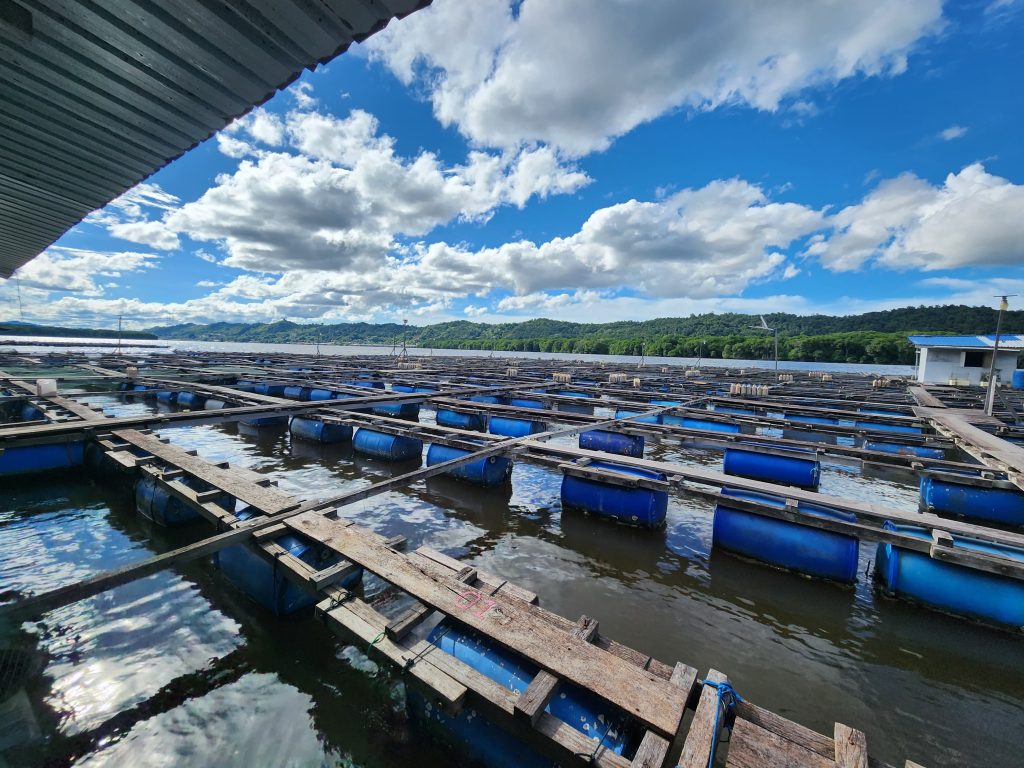
The company is also developing an Internet-of-Things (IoT) and artificial intelligence (AI) system to monitor and manage operations more efficiently. The goal is to improve decision-making through data, especially on feeding schedules, growth rates and early signs of disease.
“This isn’t just about technology. It’s about making fewer mistakes and improving survival rates. If a system can flag issues before they become problems, we save time and resources,” he said.
In a long run, Fatih’s broader mission is to reduce Brunei’s dependency on imported seafood and fingerlings – a process that is still in its early stages.
“We currently produce a small share of what Brunei consumes,” Fathi shared. “But even covering one percent is meaningful if it leads to something more. We want to build on that and keep growing.”
Fathi also believes that aquaculture has a long-term role to play in Brunei’s national food strategy.
“At the moment, we are only covering a small percentage of the country’s seafood consumption,” he said.
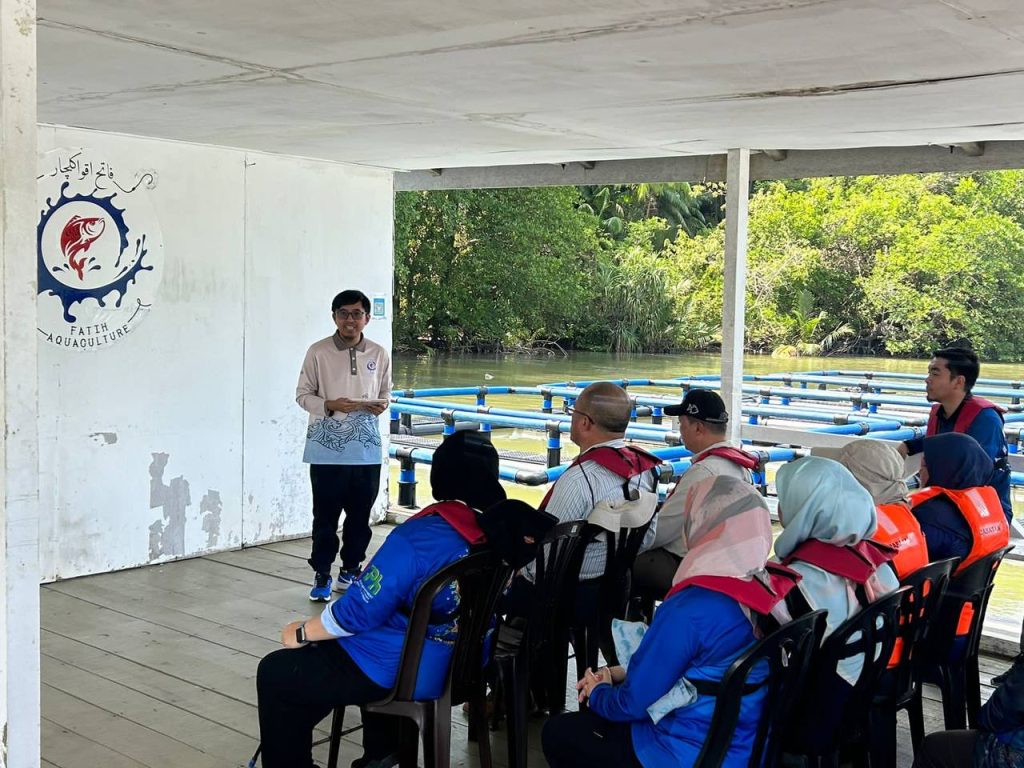
“But we are building capacity step by step. The potential is there. With consistent production, we can reduce our dependence on imported fish and fingerlings. That has real value, not just for business, but for national resilience,” he added.
For Fathi, the meaning of Bruneian-made seafood goes beyond supply and demand.
“It means we are taking responsibility for our own food systems. It means we are capable of producing high-quality fish that meet international standards. It also shows that we can innovate, adapt and move forward as a country,” he further explained.
He also encourages others who may be thinking of starting small businesses, especially in emerging industries, to move forward despite uncertainty.
“You will never know the outcome unless you start. The beginning will always be the hardest part. I faced doubts, setbacks and delays, but I kept going. Failing early is part of the process. What matters is what you learn and how you apply it. That is what moves you forward,” he advises.
THE BRUNEIAN | BANDAR SERI BEGAWAN

